Ten years on from Egypt's Arab Spring - what has become of the Tahrir Square revolutionaries?
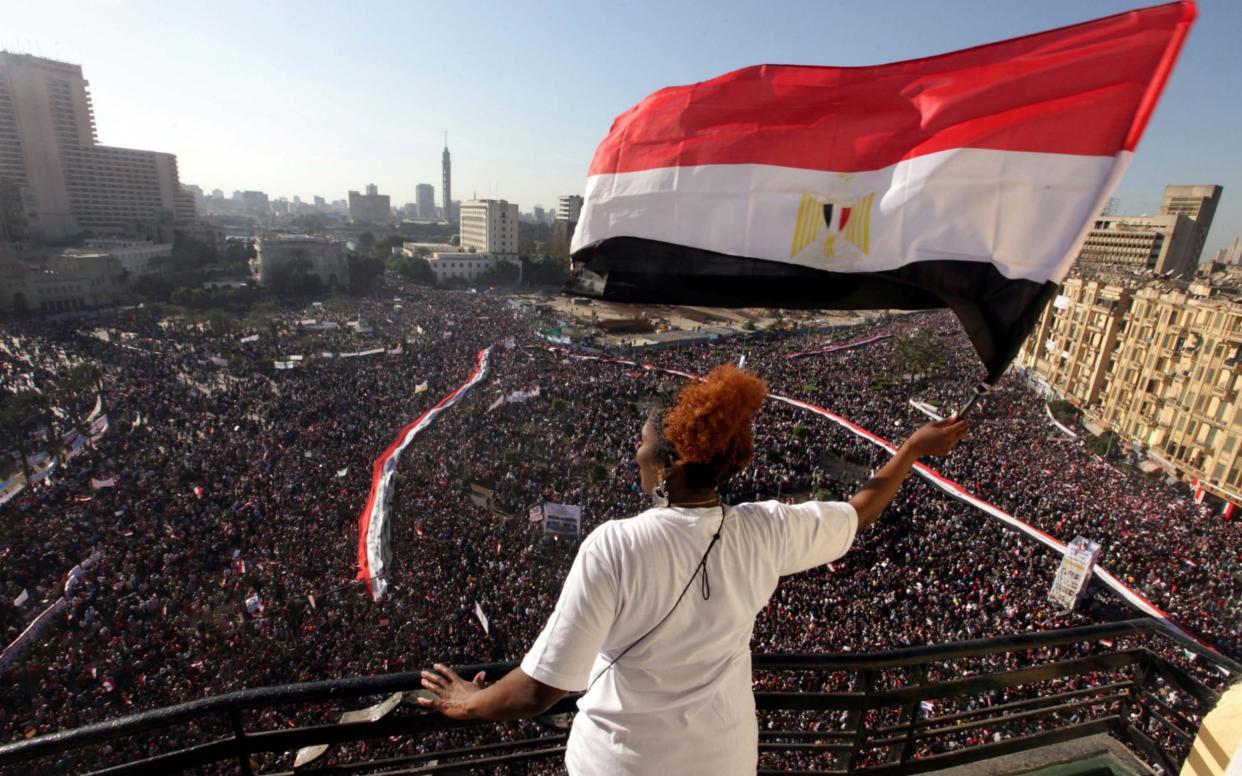
The last time I spent an afternoon with Mina Naguib, both he and his revolutionary ideals were about to take an unexpected battering. It was the height of Egypt's Arab Spring revolution and, in Cairo's Tahrir Square where he and thousands of others were demanding the downfall of President Hosni Mubarak, we had just survived what became known as the "Battle of the Camels".
A mob of Mubarak supporters, some of them on camelback, pictured below, had attacked the crowd, hoping to disperse them with a humpbacked cavalry charge. Yet, the demonstrators had stood firm, pelting the attackers with stones and dragging them off their mounts. The revolution, it seemed, had weathered a stern test. Then, as Mina left for the day, he got a reminder that outside Tahrir Square, the old, reactionary Egypt was still very much there.
"I was trying to get a cab when some more Mubarak supporters saw me," he recalls. "One said to me: 'Our houses are getting looted because of you stupid kids causing chaos.' The next thing I knew he was grabbing my tee-shirt and punching me. Thank God, someone else shoved me in a taxi before it got too bad. But I had never seen that kind of violence in my life, and it took me a while to process."
Ten years on and having just turned 30, Mina is still "processing". Like millions of other Egyptians, he is wondering what happened to the revolution that they risked beatings, arrest and sometimes their lives for. A fortnight after the camel charge in Tahrir Square, Mubarak finally resigned, in what seemed like the biggest triumph of people power since the fall of the Berlin Wall. Today, though, Egypt is ruled not by a democrat, but once again by another strongman, Abdel Fattah el-Sisi, who staged a military coup in 2013, ousting the country’s first democratically-elected leader. Egypt's old guard, in other words, has re-asserted itself - leaving Mina, who is now living in Sweden, with little but bittersweet memories.
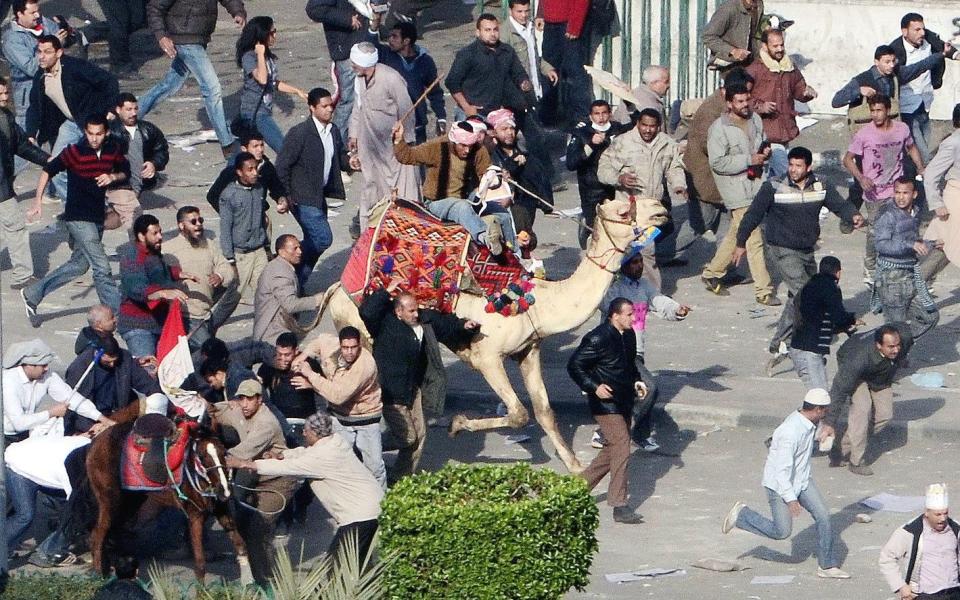
"At the time, it felt amazing, because we never really thought we'd get rid of Mubarak," he says. "But we were naive, we actually believed that democracy was taking root. Now you can't really call it a revolution anymore, as the regime never went away. It is with a broken heart that I think about it now: many people I know are in jail getting tortured, and state security is all the stronger."
A different kind of revolution
I, too, have vivid memories of those days in Tahrir Square. I had been covering the Middle East since the US invasion of Iraq in 2003, during which the only people setting the region's political agenda seemed to be either Washington neo-conservatives or Al-Qaeda radicals. It seemed that young Arabs - cowed by growing up in police states - knew better than to try to shape their own future.
How wrong I was. Arriving in Cairo to cover the protests in late January 2011, I met vast numbers of educated, articulate 20-somethings, all keen for their own version of the "Velvet" revolutions that had swept away tyrants in Eastern Europe. Rather than guns, their weapons were Facebook and Twitter, whose power as political organising tools was only just being recognised.
Ironically, their deft IT skills were partly down to Mr Mubarak, who had nursed grandiose dreams of turning Egypt into a Middle East tech hub, setting up "Smart Village" business parks in Cairo's suburbs. What he hadn't recognised was that his bright new armies of web entrepreneurs and English-speaking call centre workers would grow up far more connected to the world than their predecessors. They wanted clean elections, free speech, and in particular, reform of the police. So, when a young man called Khaled Saeed was beaten to death in police custody, a Google executive named Wael Ghonim set up a Facebook page in his honour named "We are all Khaled Saeed". It served as a hub for gestures of sarcastic dissent, such as an ironic celebration of Egypt’s National Police Day. The page quickly went viral, becoming the rallying point for protesters all over Egypt.
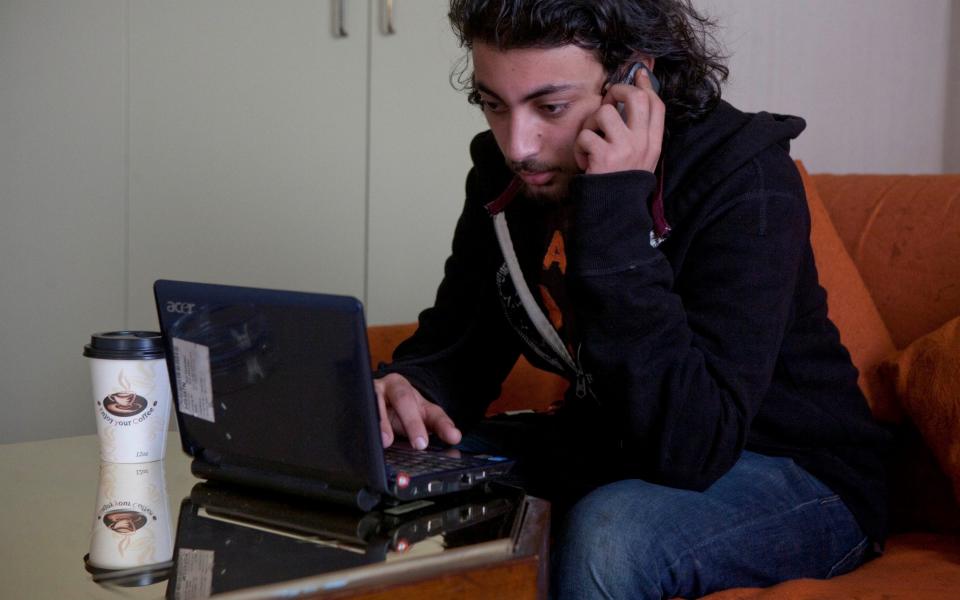
At that time, Mina was part of a web-savvy activist army, who helped orchestrate the uprising by uploading smart-phone videos of the demonstrations. Like most activists, he saw foreign press coverage as helpful, so when I bumped into him in Cairo one day, he agreed to act as my translator. With perfect English and willingness to risk arrest - a prospect far worse for him than me - he proved an ideal guide. He even upbraided me if he thought I wasn't being tough enough when interviewing Mubarak's politicians.
Mina had spent time doing charity work in rural Egypt, where he'd been shocked by the levels of poverty that three decades of Mubarak rule had failed to end. As he told me back then: "Our government is always on the news saying everything is great, but it's not, and we aren't even given the freedom of speech to say so."
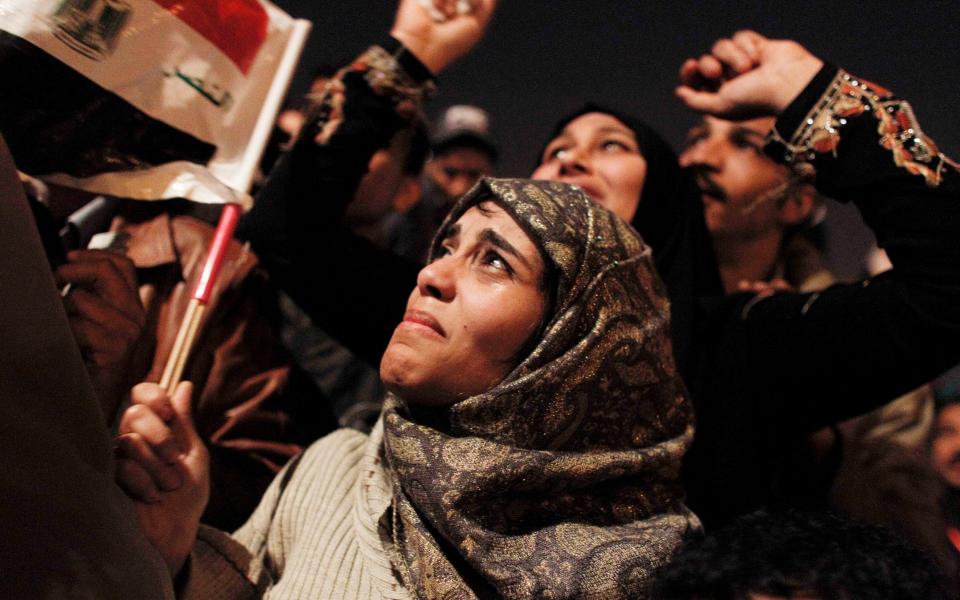
The fall of Mubarak
The activists' sense of possibility when Mubarak finally stepped down was giddying. For all the comparisons with the fall of the Berlin Wall, this wasn't some ossified communist dictatorship that was already crumbling, but an entrenched strongman who had Western backing. Egypt, moreover, was 10 times the size of little Tunisia, where the fall of Zine El Abidine Ben Ali had ignited the Arab Spring the month before. If a dictatorship could be challenged here, it could be challenged anywhere - and within weeks it was, next in Libya and then Syria.
"It was overwhelming, scary," says Mina. "Most of us had no idea things would go that far."
Yet free elections, when they finally came to Egypt the following year, proved difficult for Mina and his ilk. By then, Mubarak's old party, the National Democrats, had been dissolved by court order, and he himself was in prison. But after decades as a one-party state, Egypt had no well-established opposition party waiting to take over. Nor could the activists, for all their reformist zeal, unite to form one. Perhaps understandably, many distrusted all forms of organised politics, recoiling at peers who even aspired to leadership.
Instead, the elections handed power to Egypt's Muslim Brotherhood, the Islamist party previously outlawed during Mubarak's rein. Their mere presence on the ballot paper alarmed more secular Egyptians, who feared they would create an Iran-style Islamic theocracy. But as an organised, disciplined religious movement, the Brotherhood's electoral machine proved far more effective at getting voters out. When Mohamed Morsi, below, the Brotherhood's candidate, was declared Egypt's first democratically-elected leader in June 2012, Western governments politely applauded. But to many Egyptians, it seemed they were simply swapping one form of repression for another.
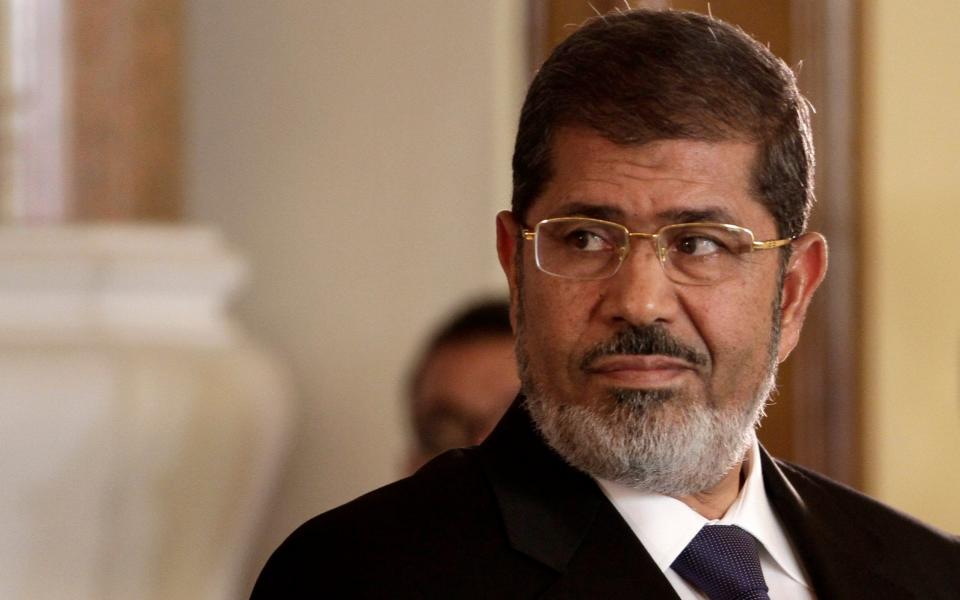
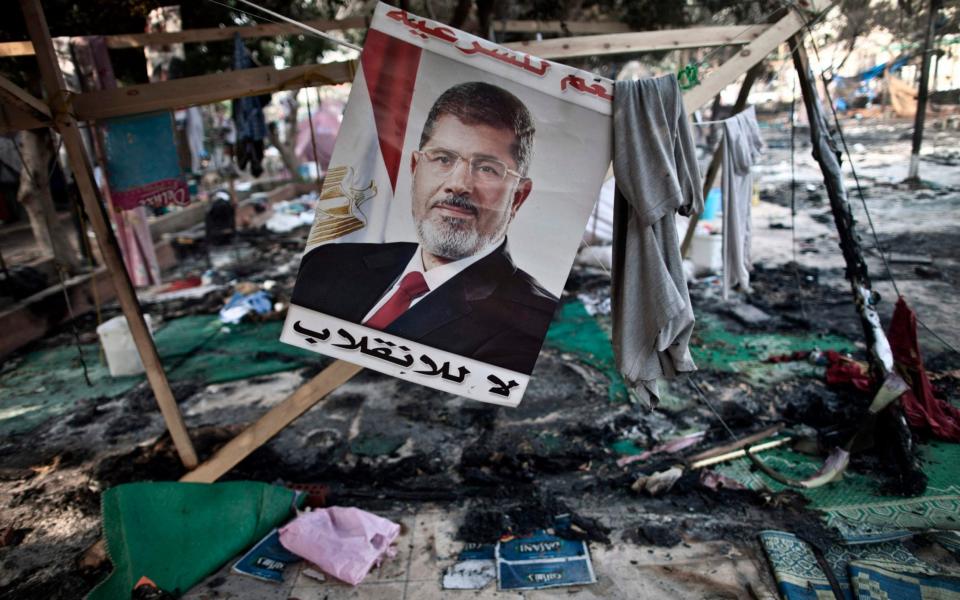
Within the year, Tahrir Square was packed with demonstrators again - this time with the blessing of the old Mubarak-era political establishment and their allies in the army. Mr Morsi insisted the party would take Egypt on a moderate path, but did little to reassure sceptics. He concentrated power in his own hands and stuffed the ranks of government with fellow Brothers, many of them more interested in debating obscure points of Islamic law than rescuing the collapsing economy. In July 2013, after barely a year in office, the army arrested Mr Morsi, massacring at least 800 of his followers as they demonstrated in his support. Western governments condemned the violence, while conspicuously failing to call it for what it was - a coup against a democratically-elected government.
"The coup against the Brotherhood was a very tough time for activists," Mina says. "On the one hand, the Brotherhood had used and abused their power. But on the other, we were trying to stand in solidarity with them as an elected government, who were now being removed by the old regime."
A return to authoritarian ways
Since then, Egypt's new president, Mr Sisi, has returned the country to its old authoritarian ways. According to Human Rights Watch, more than 60,000 people have been arrested on political grounds, including journalists and businesspeople who have voiced just mild criticisms of Sisi's regime. Yet the new "Pharaoh" has his supporters - including some who demonstrated for Mr Mubarak's downfall.
Among them is Ali Abdelwahab, a Cairo doctor whom I met while covering the Tahrir square protests. Back then, he regaled me with stories of the repressiveness of Mubarak's regime, where even his Cairo medical college had its own resident secret policeman. Catching up with him last week, I assumed that like Mina, he'd be despondent. Once again, I couldn't have been more wrong.
"As a doctor I have my hand on the pulse of the nation: I have a practice among the Cairo high society, and I also do rounds of the poor. And Sisi is very highly regarded, he has a clear vision of how to pull the country up by the bootstraps," he says. "Under the Brotherhood, we were going in the direction of Pakistan or Afghanistan, whereas Sisi is sticking up for secularism."
Aware that Western liberals "might not like what I have to say," Ali points out how unsettling life was for secular Egyptians during Brotherhood rule. "I have two daughters, whom my wife and I have brought up liberally, and suddenly we were seeing this explosion of Islamist and Salafist channels on TV. My wife said: 'I do not want to bring them up in a medieval, backward society, and so we moved them abroad."
It is not, he insists, simply a return to the status quo. While Mubarak's rule was stagnant and corrupt, he says, Sisi has packed his government with technocrats who are now more responsive to the nation's needs. "The Arab Spring has taught us that if enough people don't like you, they will get rid of you," he argues.
But what about Mr Sisi's lack of democratic credentials? It was, he now thinks, "naive" to think that democracy could take root straightaway. "The Egyptian people are wise to understand that in our part of the world, it is going to take a bit of time. You can't just copy and paste it - that has created havoc here in the Middle East, with millions of people dying because a bunch of twits in the West think they know how we should run our governments. When will democracy finally come? I don't know. But under Mubarak, it was the constant pause button, while now that is off.”
And Sisi's human rights record? He shrugs. "Unless people are advocating insurrection, they are fine - most people I know feel free to say what the hell they want now. I don't buy what the human rights groups say - people are not just arrested for the sake of it."
Many might disagree. But it reflects, perhaps, the fact that for the silent majority of Egypt's 100m population, stability and security is prized as much as freedom. For many, the protests of January 2011 brought nothing but worry, especially when Mubarak's security forces withdrew from Cairo's streets. It led to 30 police stations being burned down in a single night, and massed outbreaks of looting. As one businessman, who was organising self-defence militias in his district, complained to me back then: "There are 150,000 people in my neighbourhood, and they are all scared out their minds." Indeed, I was reminded of his remarks later that very year, when looting near my home during the London riots left me scared and angry too. And that was nothing compared to Cairo's chaos. Small wonder, perhaps, that a Mubarak supporter wanted to duff up poor Mina.
So has anything really changed? One thing Mina and Ali agree on is that ordinary Egyptians now feel freer toexpress themselves than they used to. No more do secret policemen loiter Ali's medical college. And be it at home or on the streets, politics is no longer a taboo subject.
"It did open up a lot of discussions - the idea that every family could discuss politics for the first time," says Mina. "Even if the bigger picture hasn't changed, the fact that people can be interested and engaged in politics is itself a miracle."
Where they differ, though, is on the question of when all those righteous, energetic souls who found their voice in Tahrir Square will finally have their day.
Mina, though, is less optimistic. Not long after the beating he took near Tahrir Square, he enrolled on a university course in Sweden, where he has now built a new life for himself. He still stays in touch with fellow activists. But conversations that were once filled with heady optimism are now tinged with sadness.
"It has become a traumatised generation," he sighs. "Some have gone into politics, others don't want to talk politics at all, and some have been in therapy. Is that dream of democracy in Egypt still there? Yes. But to be realistic, I don't see it happening in my lifetime."

